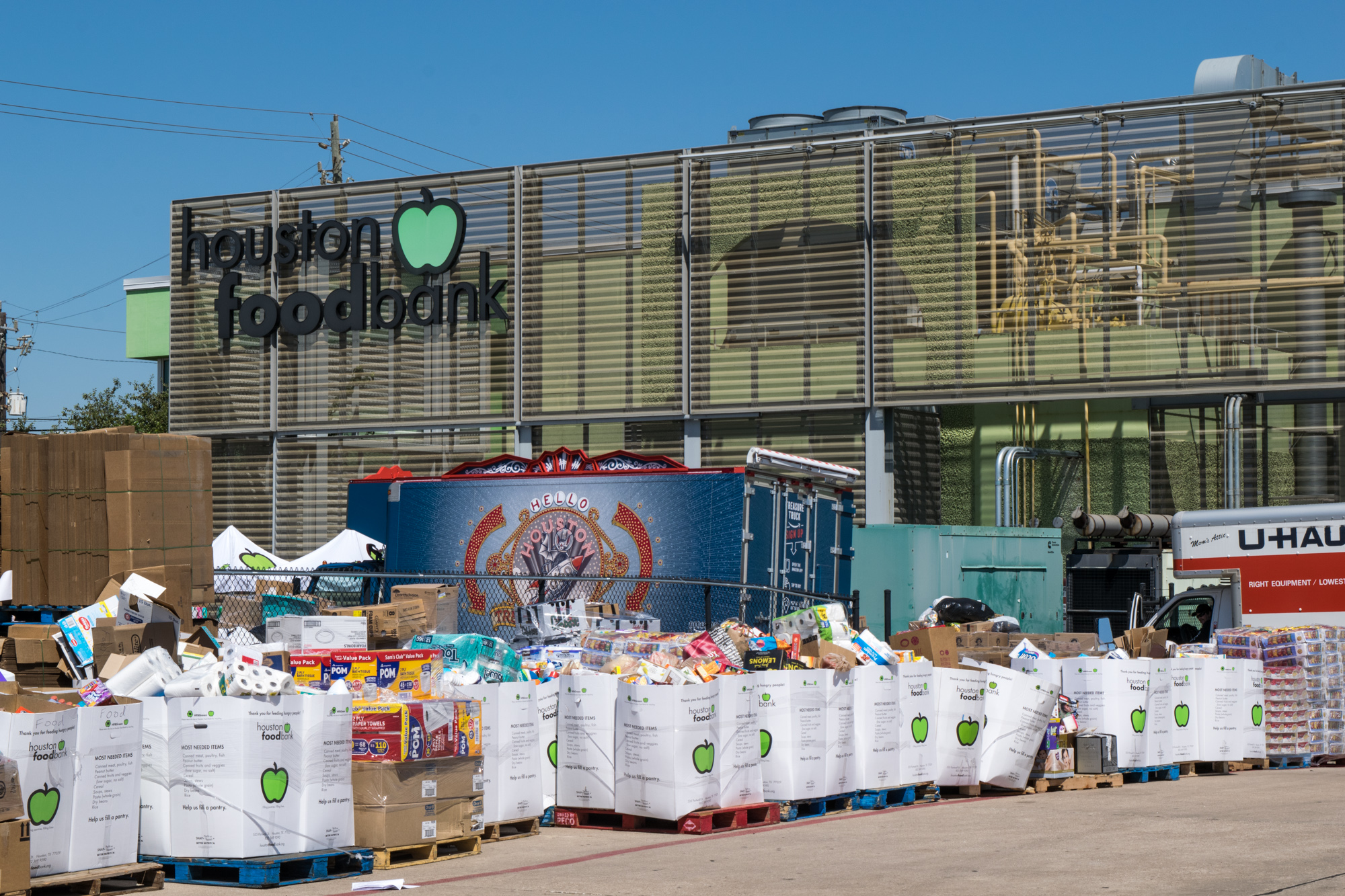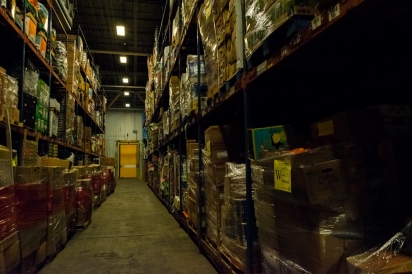Houston Food Bank Supports Health in Harvey Aftermath
Tens of thousands of families are still reeling from the effects of Hurricane Harvey and what they’ll serve for dinner is just one of the many questions that families might face. Being able to locate groceries, afford them, find transportation to purchase them and have a place to prepare food are all barriers to folks getting square meals on the table.
Luckily, the Houston Food Bank has been doing its part to alleviate some of the stress of getting balanced meals to those displaced by Harvey.
Of the 18 counties in the Houston Food Bank’s service zone, 11 were declared disaster areas after Hurricane Harvey. While the Food Bank has received an incredible influx of shelf-stable donations to keep southeastern Texas fed in the wake of this massive disaster, it’s their dedication to maintaining their goal of 40% fresh food donations to all distribution points since Harvey that makes the Food Bank stand out. Said Adele Brady, the bank’s director of communications, “You can’t give a diabetic some sugary canned fruit. [We’re] paying attention to health. That’s why 40% of what we [distribute] is produce.”
There’s no doubt that keeping people fed is the highest priority—even if that means a couple weeks of surviving mostly on chips, cookies and mac and cheese. But the most vulnerable in our population, those with health and dietary issues, will find themselves in a difficult place when forced to live off of strictly pre-packaged foods that tend to be higher in the sugar, salt and preservatives that keep them shelf-stable. Access to fresh produce through Food Bank distributions provides healthier options for everyone affected by the storm, even in the midst of sorting out their lives and the property losses they might have sustained.
Cheryl Woolf, a registered and licensed dietitian in Houston, discussed the challenges of eating well after an experience like Harvey. “The stress of [a disaster like this] is huge… It’s definitely going to affect your eating habits, and to get back on track there will have to be some prioritization of your health vs. what you are going through with your house or what you’ve lost. Sometimes food comes last in those situations.”
She continued, “Some people can’t stop working [to take care of themselves] yet.” She went on to encourage people who are still working to put their lives together to take care of themselves in whatever little ways they can, while acknowledging that things won’t be normal for a while. She suggests individuals ask themselves, “What are the foods that can help you out in this situation, what are the best foods if you are running around taking care of people or taking care of your own situation.”
The Houston Food Bank has been working around the clock to ensure that people in our city and surrounding affected areas have access to food they need to sustain themselves through these weeks of starting over, and for as long as it’s needed. “We’re in this for the long haul,” said Brady.
It’s going to take us a long time to pick up all the pieces after Harvey. What we eat will be a huge part of the recovery process—the steam in our engines—and one of the ways we can connect with and support others in our communities.
If you’re in need of food, find a distribution point near you at houstonfoodbank.org/agency-locator/






